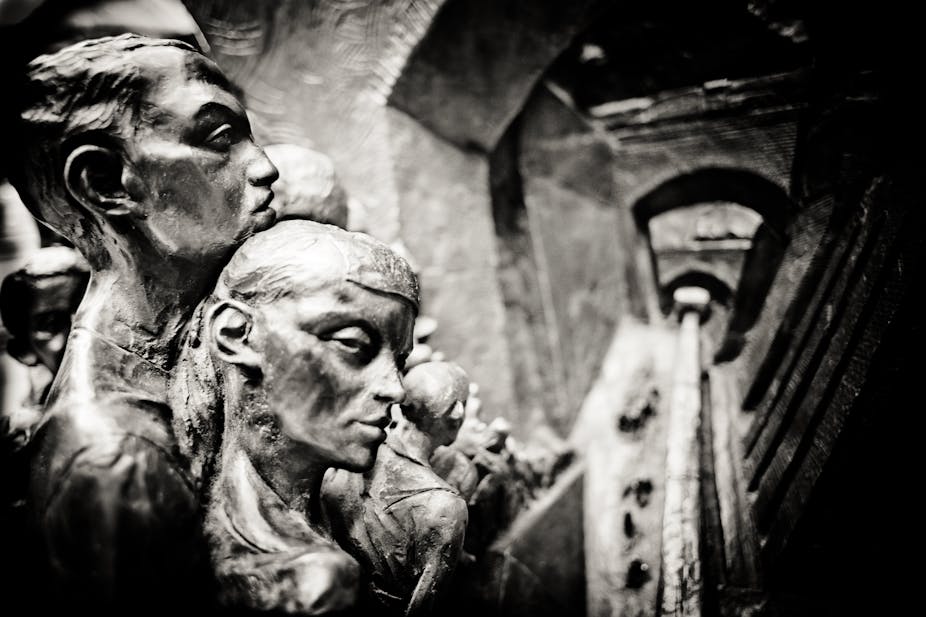It’s been 21 years since the publication of Irvine Welsh’s groundbreaking and controversial novel, Trainspotting. Since then, it has been widely praised and criticised, rejected by a mainstream audience and embraced as a cult read. So where might it sit between those extremes?
For those who haven’t had the pleasure, the book follows the fate of four Edinburgh junkies and their decidedly non-junkie (but serially aggressive) pal, Begbie. Finding the money to score becomes all-important, to the detriment of everyone around them and – as main character Renton discovers – breaking free from this peer group is almost as difficult as kicking heroin.
The book has been variously described as “a collection of short stories”, “a series of unrelated episodes”, a work “broken up into fragments” – with the result that it’s “hard to call it a novel”. Its original imprint ran a quote by writer Kevin Williamson suggesting it deserved to sell more copies than the Bible.
So, from a distance of two decades, what can be made of this tale of “wideos” in Scotland’s – and latterly London’s – housing schemes?
In his 2005 book on Trainspotting, University of Edinburgh lecturer Dr Aaron Kelly writes:
… mainstream metropolitan criticism often mistakes as a failed or underdeveloped version of itself a writing that is actually the site of radical difference.
In writing this, Kelly pinpoints the reason for both the novel’s rejection and acclamation. Great novels can be said to challenge the status quo, any status quo, in a manner that also carries some kind of investigation into the human condition, any human condition, anywhere.
It’s hardly surprising, in retrospect, that when the book was published, many critics refused to acknowledge it as a novel. John Hodge, who rewrote Trainspotting as screenplay for the Danny Boyle 1996 film version, describes it as:
a collection of loosely related short stories about several different characters. Only towards the end does it take on a continuous narrative form.
As Kelly points out, such readings of the novel fail to meet the reader’s own expectations of a novel’s form and function rather than considering whether it’s those very expectations that fail Trainspotting. As Welsh himself noted in a 1995 interview published in the Guardian:
This medium, literary fiction, is a middle-class plaything, so you’re analysed, dissected and defined by people who have come from a certain cultural viewpoint. They are looking into a world that they don’t have direct first-hand experience of so they rely on intuitive views and prejudices which may or may not be appropriate.

The novel-or-not-a-novel debate distracts somewhat from the key fact of the language that Welsh represents in the book, that signposts the serious intent or basis of the book: its cry of the unvoiced in post-Thatcher Britain, representing the cry of any unvoiced in any cultural place or age:
Society invents a spurious convoluted logic tae absorb and change people whae’s behaviour is outside its mainstream. Suppose that ah ken aw the pros and cons, know that ah’m gaunnae huv a short life, am ah sound mind, ectetera, ectetera, but still want tae use smack? They won’t let ye dae it. They won’t let ye dae it, because it’s seen as a sign ay thir ain failure. The fact that ye jist simply choose tae reject whut they huv tae offer.
Surely “giving voice” in this way is a significant function of art, of literary fiction, and whether it complies with previous modes or not is irrelevant except for the sake of those trained to read it within the rigid boundaries of their training.
Welsh is transgressing, consciously and deliberately, the ideology represented by Standard English that, according to Kelly:
not only denotes a supposedly standardised language that is equitably accessible to all but also one that sets the standard, so that any other speech or discourse is, by definition, substandard, deviant and inferior.
In Australia we have examples of this that slip by mainstream attention more than likely for the same reasons, for the same Standard Australian-English that prevails. One need only think of the poetry of Lionel Fogarty, of Pi O, particularly his epic book-length verse-novel 24 Hours. Perhaps we might also add C. J. Dennis and his book Sentimental Bloke.
Trainspotting, for the reasons outlined above, should be considered on a par with Miguel de Cervantes’ Don Quixote (1605), Laurence Sterne’s The Life and Opinions of Tristram Shandy, Gentleman 1759-67, Fyodor Dostoyevsky’s Crime and Punishment (1866) and Franz Kafka’s The Castle (1926).
To paraphrase the author’s own words in the novel: it chooses life, and succeeds.
Irvine Welsh will be talking at the Sydney Writers Festival on May 25.

